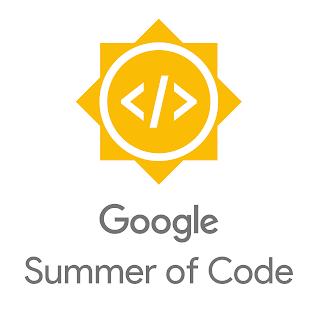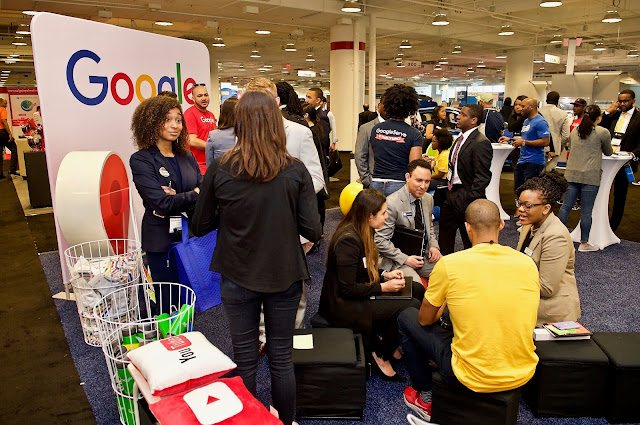Welcome to the 28th installment of our blog series “My Path to Google.” These are real stories from Googlers, interns, and alumni highlighting how they got to Google, what their roles are like, and even some tips on how to prepare for interviews.
Today’s post is all about Divya Tyam. Read on!
Can you tell us a bit about yourself?
I grew up in Bangalore, India, where I completed my undergrad in Information Science and Engineering. I came to the US to attend grad school at Carnegie Mellon University, where I received a master's degree in Computer Engineering.
While I was picking my major for undergrad, I was looking for a field that was interdisciplinary and would combine my creative inclinations with practical applications. Computer science seemed like a very obvious choice, and that has proven right in all these years. I've been lucky to have been in a field where I've been able to meld my interests in art, photography, mathematics, and social sciences all into one career.
I tend to pick up new hobbies all the time – the most recent ones have been improv theater, sewing, photography, and drawing. I've also done theatre, music, painting, and more.
What’s your role at Google?
I am a Software Engineer working in a team called Cerebra, part of Google AI, where I work on on-device intelligence. My most recent work has been on Google Clips, a camera built for automatic photography.
Aside from being a camera with a cool application, what's remarkable is that all of the AI runs continuously on device, which poses new and interesting technical challenges.
What inspires you to come in every day?
I am very inspired by the work we're doing around AI, solving a wide range of issues spanning both technical as well as ethical.
One of the areas I work on is ML Fairness, where we're bringing attention to the need for inclusive machine learning algorithms. This includes ensuring that our AI is trained and validated on diverse datasets, as well as exploring techniques in model training that mitigate unintended biases. With the democratization of AI, the work in this field will be crucial in ensuring that innovations in AI across the industry are useful for everyone.
This area also aligns with my interests in the broader idea of diversity and global citizenship, something I’m active in outside of work, as a Senior Fellow and Board Member of the Melton Foundation.
Can you tell us about your decision to enter the process?
After I finished my undergrad, a friend lent me a book about Google. As I was reading through it, I realized that Google was my kind of place and I simply had to be there. That being said, my path to Google wasn't a straight line. I worked at IBM and Microsoft for a few years learning the ropes as an engineer. These experiences were helpful to me and and my personal path to Google.
My priority has always been to work on things that interest me, so I'm glad that I chose the path that I did, because I learnt a lot of things and met a lot of great people along the way.
How did the recruitment process go for you?
I was referred to Google by a former co-worker. My interview process was great and I left with a good feeling about it. I also worked with a really awesome recruiter who helped me navigate the whole process with ease.
What do you wish you’d known when you started the process?
I'll be candid and say that I didn't make it through the Google interviews on my first try. Part of the process of getting it right on my next try was to refresh my CS problem solving skills. As someone who was working in the industry at that time, it took me a while to realize that being able to demonstrate strong skills in CS fundamentals was always going to be important, irrespective of how many years of work experience I'd rack up.
My challenge with design interviews was that I didn't have experience in large scale distributed systems at that time, so I had to rely on theoretical knowledge. I was honest about this with my interviewer, and that helped put me at ease through the interview.
Can you tell us about the resources you used to prepare for your interview or role?
I went through the usual list of resources my recruiter shared with me. One thing that I did to adapt to my specific learning technique was to pick a problem and then spend days thinking about different ways to solve it as well as different ways that it could be formulated.
Today’s post is all about Divya Tyam. Read on!
Can you tell us a bit about yourself?
I grew up in Bangalore, India, where I completed my undergrad in Information Science and Engineering. I came to the US to attend grad school at Carnegie Mellon University, where I received a master's degree in Computer Engineering.
While I was picking my major for undergrad, I was looking for a field that was interdisciplinary and would combine my creative inclinations with practical applications. Computer science seemed like a very obvious choice, and that has proven right in all these years. I've been lucky to have been in a field where I've been able to meld my interests in art, photography, mathematics, and social sciences all into one career.
I tend to pick up new hobbies all the time – the most recent ones have been improv theater, sewing, photography, and drawing. I've also done theatre, music, painting, and more.
What’s your role at Google?
I am a Software Engineer working in a team called Cerebra, part of Google AI, where I work on on-device intelligence. My most recent work has been on Google Clips, a camera built for automatic photography.
Aside from being a camera with a cool application, what's remarkable is that all of the AI runs continuously on device, which poses new and interesting technical challenges.
What inspires you to come in every day?
I am very inspired by the work we're doing around AI, solving a wide range of issues spanning both technical as well as ethical.
One of the areas I work on is ML Fairness, where we're bringing attention to the need for inclusive machine learning algorithms. This includes ensuring that our AI is trained and validated on diverse datasets, as well as exploring techniques in model training that mitigate unintended biases. With the democratization of AI, the work in this field will be crucial in ensuring that innovations in AI across the industry are useful for everyone.
This area also aligns with my interests in the broader idea of diversity and global citizenship, something I’m active in outside of work, as a Senior Fellow and Board Member of the Melton Foundation.
Can you tell us about your decision to enter the process?
After I finished my undergrad, a friend lent me a book about Google. As I was reading through it, I realized that Google was my kind of place and I simply had to be there. That being said, my path to Google wasn't a straight line. I worked at IBM and Microsoft for a few years learning the ropes as an engineer. These experiences were helpful to me and and my personal path to Google.
My priority has always been to work on things that interest me, so I'm glad that I chose the path that I did, because I learnt a lot of things and met a lot of great people along the way.
How did the recruitment process go for you?
I was referred to Google by a former co-worker. My interview process was great and I left with a good feeling about it. I also worked with a really awesome recruiter who helped me navigate the whole process with ease.
What do you wish you’d known when you started the process?
I'll be candid and say that I didn't make it through the Google interviews on my first try. Part of the process of getting it right on my next try was to refresh my CS problem solving skills. As someone who was working in the industry at that time, it took me a while to realize that being able to demonstrate strong skills in CS fundamentals was always going to be important, irrespective of how many years of work experience I'd rack up.
My challenge with design interviews was that I didn't have experience in large scale distributed systems at that time, so I had to rely on theoretical knowledge. I was honest about this with my interviewer, and that helped put me at ease through the interview.
Can you tell us about the resources you used to prepare for your interview or role?
I went through the usual list of resources my recruiter shared with me. One thing that I did to adapt to my specific learning technique was to pick a problem and then spend days thinking about different ways to solve it as well as different ways that it could be formulated.







